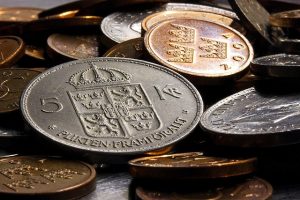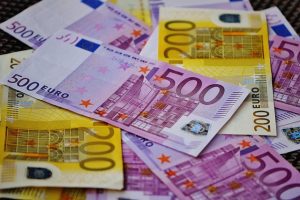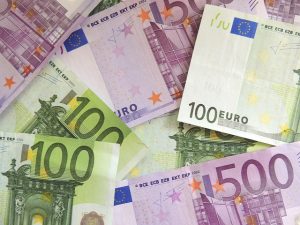なるほど~!ノーベル賞が尊敬される理由とそのご褒美は?
 イメージ
イメージ
なるほど~!ノーベル賞が尊敬される理由とそのご褒美は?
今年は日本人のノーベル賞受賞者が2人も誕生し、国内は大いに盛り上がりました。
科学分野の専門的な内容は難しい部分もありますが、
どちらの研究も今後の世界に大きく貢献する素晴らしい成果です。
さて、ふと気になったのが「ノーベル賞を受賞すると、いくらもらえるの?」
という素朴な疑問。
そこで、ノーベル賞の運営や財政の仕組みを少し調べてみました。
■ ノーベル賞の理念と透明性
ノーベル賞を運営するのは「ノーベル財団」。
この財団は、政治的・宗教的・経済的な影響を受けない独立した存在であることを
何よりも重視しています。
そのために、
国家予算を一切受けない
年次報告書で投資・運営内容を公開
ESG(環境・社会・ガバナンス)基準に基づく投資方針を採用
といった厳格な運営を行っています。
まさに“透明性の象徴”といえるでしょう。
■ ノーベル財団の概要
設立:1900年(アルフレッド・ノーベルの遺言に基づく)
本部所在地:スウェーデン・ストックホルム
目的:物理学・化学・生理学・医学・文学・平和・経済学の各分野で、
人類の発展に貢献した個人や団体を顕彰する。
運営形態:国家機関ではなく、非営利の独立財団
 イメージ
イメージ
■ 資産と運用
ノーベル財団は、ノーベルの遺産(当時3,100万スウェーデンクローナ)を原資に
運用を開始しました。現在は投資による収益が主な財源となっています。
総資産(2024年時点):約55〜60億スウェーデンクローナ(約700〜800億円)
運用方針:長期的・安定的な運用を重視し、約60%を株式、
残りを債券や不動産などで分散投資。
運営費:式典、広報、審査などに年間約5,000〜6,000万スウェーデンクローナ。
■ 賞金の仕組みと分配
ノーベル賞の賞金は、財団の投資収益から支払われます。
2024年の賞金総額は、1部門あたり約1,100万スウェーデンクローナ(約1億7,000万円)。
各部門(物理学、化学、生理学・医学、文学、平和、経済学)に1つの
「賞金プール」が設定され、受賞者が複数の場合は最大3人で分割されます。
■ 賞金額の変遷(概算・為替変動あり)
| 年 | 賞金額(SEK) | 日本円換算(概算) |
| 1901年 | 150,782 SEK | 約240万円 |
| 2020年 | 10,000,000 SEK | 約1億5,900万円 |
| 2023年以降 | 11,000,000 SEK | 約1億7,500万円 |
創設当時に比べると、賞金額はおよそ70倍以上に増加。
これは財団の健全な資産運用と透明な経営努力の賜物です。
 イメージ
イメージ
■ 今後の展望
ノーベル財団は今後、
ESG投資の比率をさらに拡大
若手研究者支援プログラム「Nobel Prize Dialogue」などを強化
デジタル技術や教育イベントを通じ、ノーベル賞の理念を世界へ発信
といった取り組みを進めています。
ノーベル賞が単なる「賞金付きの名誉」ではなく、人類の未来を支える理念の象徴である理由が、
少し理解できた気がします。
これからも日本から、こうした精神に基づく受賞者が生まれることを期待したいですね。
 image
image
I see! Why is the Nobel Prize so highly respected,
and what kind of reward comes with it?
This year, Japan celebrated the remarkable achievement of
having two Nobel Prize laureates,
creating great excitement across the country.
Although the scientific details of their research may be complex,
both contributions represent extraordinary achievements that
will greatly benefit humanity in the years to come.
One simple question naturally comes to mind:
“How much do you actually receive when you win a Nobel Prize?”
So, I decided to look into the structure and finances behind the Nobel Prize.
■ Philosophy and Transparency of the Nobel Prize
The Nobel Prize is managed by the Nobel Foundation,
an independent institution that
places the utmost importance on remaining free from political,
religious, and economic influence.
To ensure this independence, it:
• Receives no government funding
• Publishes annual reports disclosing investments and operations
• Adopts investment policies based on ESG
(Environmental, Social, and Governance) standards
It truly stands as a symbol of transparency.
 image
image
■ Overview of the Nobel Foundation
• Established: 1900 (based on the will of Alfred Nobel)
• Headquarters: Stockholm, Sweden
• Purpose: To honor individuals or organizations that
have made significant contributions to humanity in the fields of
Physics, Chemistry, Physiology or Medicine, Literature,
Peace, and Economic Sciences
• Structure: A nonprofit, independent foundation—not a government body
■ Assets and Financial Management
The Foundation began by managing Alfred Nobel’s estate—
worth 31 million Swedish kronor at the time.
Today, its main source of income is investment returns.
Total assets (as of 2024): Approximately 5.5–6 billionSEK (¥700–800 billion)
• Investment strategy: Long-term and stable,
with about 60% in equities and the rest in bonds and real estate
• Annual operating costs: Around 50–60 million SEK,
covering ceremonies, publicity, and selection processes
■ Prize Fund and Distribution
The Nobel Prize money comes from the Foundation’s investment income.
As of 2024, the total award for each category is 11 million (around ¥175 million).
Each field (Physics, Chemistry, Physiology/Medicine,
Literature, Peace, and Economic Sciences) has its own prize pool,
which can be shared by up to three recipients per category.
■ Historical Changes in Prize Amount
(approximate, exchange rates vary)
| Year | Prize Amount (SEK) | Approx. Value in Japanese Yen |
| 1901 | 150,782 SEK | ≈ ¥2.4 million |
| 2020 | 10,000,000 SEK | ≈ ¥159 million |
| 2023–present | 11,000,000 SEK | ≈ ¥175 million |
Compared with its inception, the prize amount has increased more than
70-fold—a result of sound investment management and
the Foundation’s commitment to financial transparency.
 image
image
■ Future Outlook
The Nobel Foundation aims to:
• Expand the proportion of ESG-based investments
• Strengthen programs like “Nobel Prize Dialogue”
to support young researchers
• Promote the Nobel ideals globally through digital technology and
educational initiatives
The Nobel Prize is clearly more than just an award with prize money—
it stands as a symbol of human ideals and progress.
I truly hope that more Japanese laureates will emerge in the coming years,
carrying forward this noble spirit.

